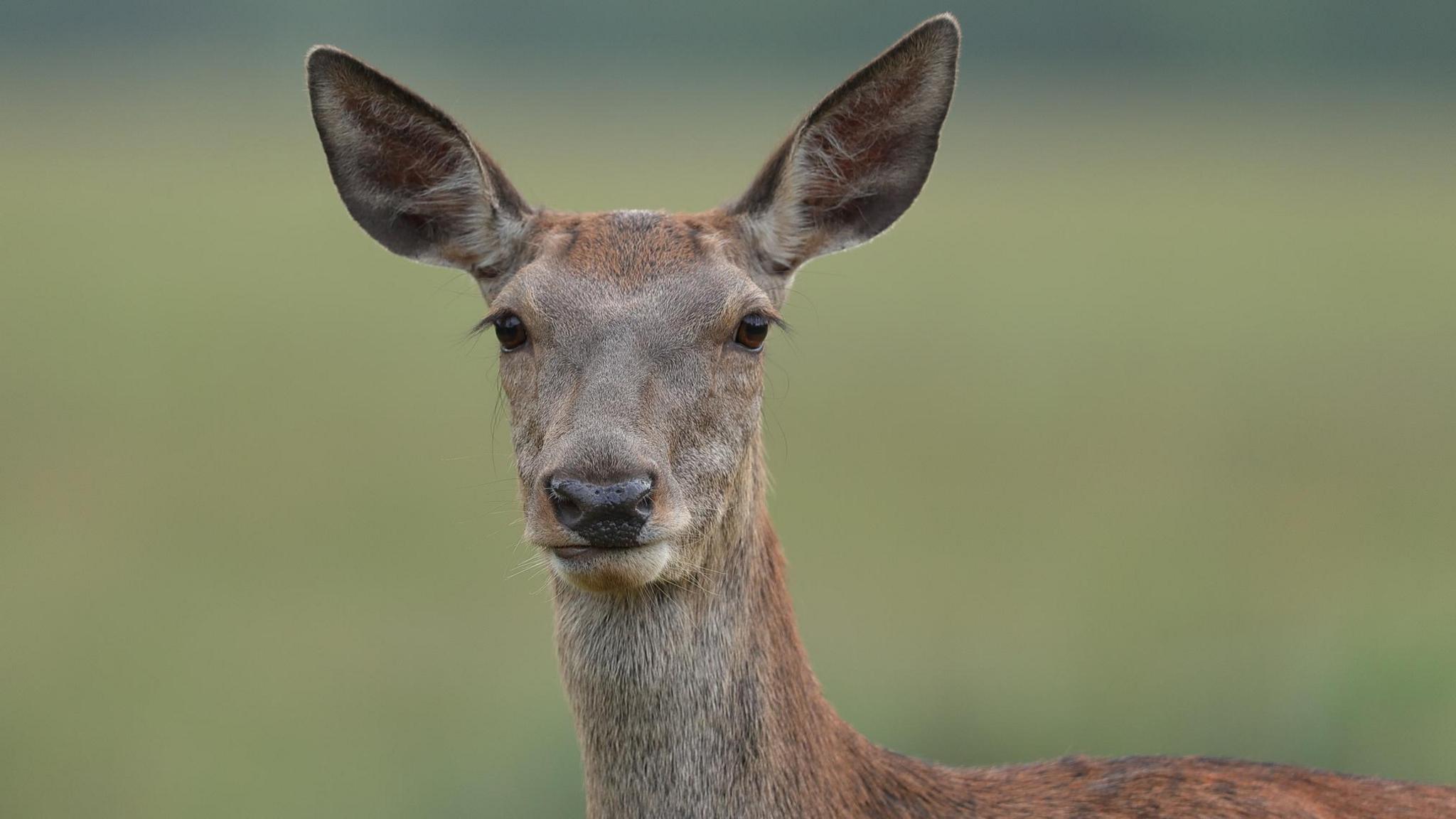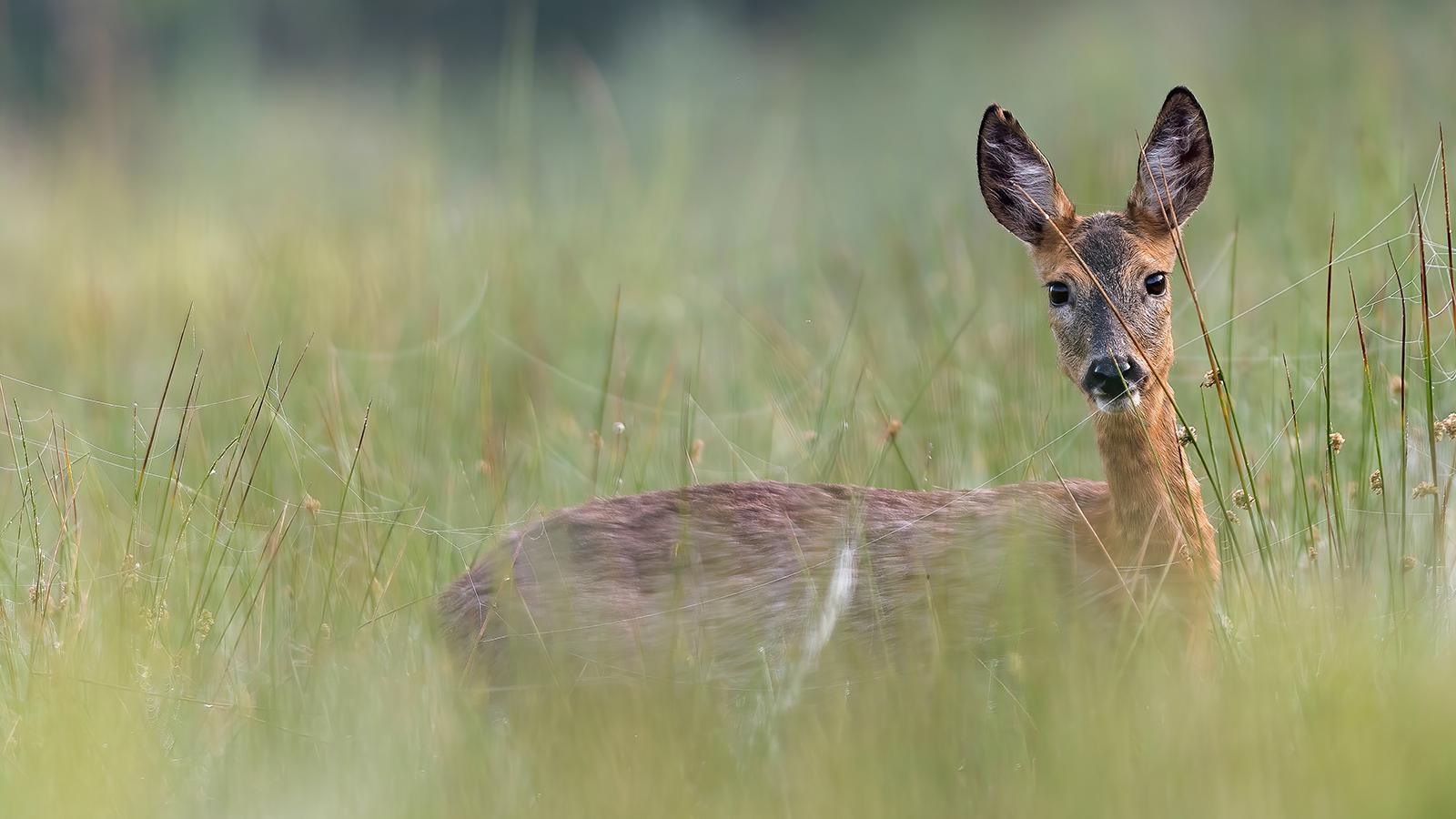Cull of female deer 'to protect millions of trees'

Deer numbers are said to have doubled in the past 30 years
- Published
Forestry and Land Scotland (FLS) is to carry out a cull of female deer next month in an effort to control numbers and protect trees.
The public agency said deer numbers across Scotland had doubled to almost a million from 500,000 in 1990.
It said the cull was necessary to tackle millions of pounds worth of damage to forestry and woodland caused by grazing deer.
FLS said woodlands being regenerated as a "response to the climate emergency" were at risk, with up to 150 million young trees vulnerable to damage.
Animal welfare charity OneKind has called for an "ethical strategy" which would allow wild animals to thrive.

Roe deer are among the four species of deer found in Scotland
Four species of deer are found in Scotland - red and roe deer, which are both native species, and fallow and sika.
The deer shooting season for hinds - female deer - runs from late October to February.
FLS said culling out-of-season in September was widely practised by land managers and was licensed by NatureScot.
It also said Scotland's Independent Deer Working Group had recently called for "proactive deer management".
Ian Fergusson, head of wildlife management at FLS, said: "The current high levels of deer numbers pose a particular threat to establishing young trees and areas of forest regeneration which are a vital part of Scotland's response to the climate emergency.
"It can also be ruinous to biodiversity projects and also poses a threat to the overall health of the herd, which in winter could struggle to find enough food and may result in many animals suffering a slow death from starvation."
Scottish animal welfare charity OneKind said there were risks associated with shooting female deer in close season.
It has called for the development of an "ethical strategy" that would allow wild animals to thrive.
Director Bob Elliot said: "Every year we remain concerned that killing female deer earlier in September could lead to a significant number of calves dying after they are orphaned.
"As long as the annual killing of deer does continue, it should at least be done in a way that minimises suffering."
He said it was welcome that the Scottish government intended to consult on further regulation on deer culls.